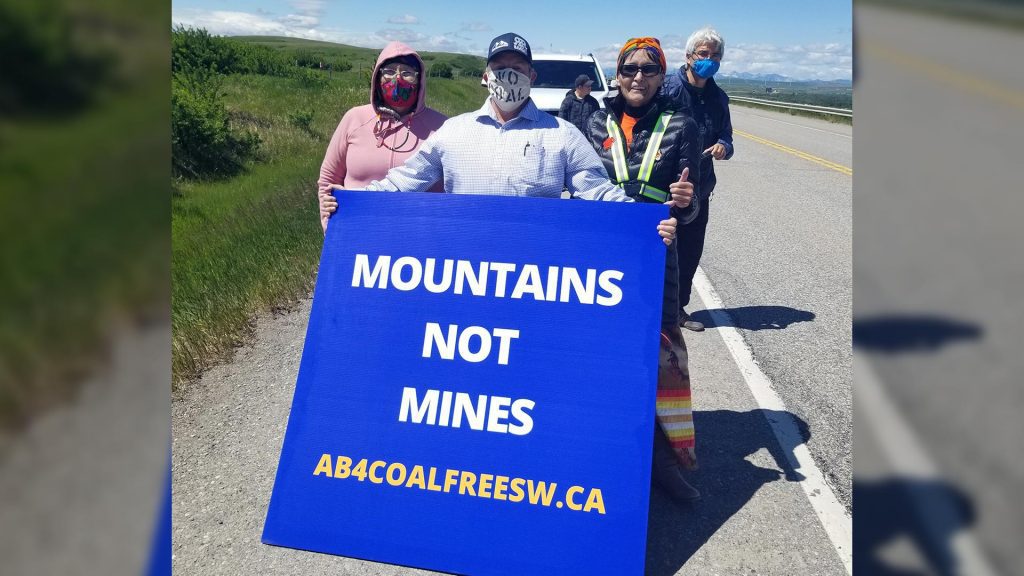
A group rallied in June against the Grassy Mountain coal project. Photo: APTN file
A contentious Rocky Mountain coal mine could see new life or come to an end in a Calgary courtroom Wednesday.
That’s when a Court of Appeal judge will hear arguments from Benga Mining Ltd., and two First Nations in southern Alberta who want to appeal the rejection of the proposed Grassy Mountain project.
The plan to develop an $800-million strip mine on the eastern slope of the Crowsnest Pass was rejected in June on environmental grounds by both provincial and federal review panels.
However, a successful appeal by Benga, a subsidiary of Australian-owned Riversdale Resources Ltd., and the Stoney Nakoda and Piikani nations could give it new life.
The project falls within the nations’ traditional and Treaty 7 territories.
First Nations
None of the two First Nations, who have signed confidential impact benefit agreements with Benga, or the company would comment for this story.
They indicated in separate appeal filings they don’t understand why the project was rejected outright, and allege the joint review panel didn’t properly consult with or accommodate First Nations’ issues and concerns.
They have appealed both the provincial and federal rejections in separate courts.
But Ian Urquhart, executive director of the Alberta Wilderness Association, which opposes the project, said the mine needs provincial approval first to proceed.
“If Justice [L. Bernette] Ho [of the Alberta Court of Appeal] says No, then the provincial rejection will stand and there’s no other option that Benga or anyone else has,” Urquhart said in a telephone interview Monday.
This decision
“If Justice Ho says, ‘I’m not going to give you permission to appeal this decision,’ then I think that’s game, set and match as far as Grassy Mountain goes.”
Urquhart said if the judge approves an appeal of the provincial decision that opens the door to approve the appeal of the federal rejection as well.
Adam North Peigan, a member of the Piikani Nation, represents a grassroots group of band members who oppose the mine.
He disagrees that First Nations weren’t consulted.
“They were given lots of time to deliver their position,” he said of the Piikani nation Monday.
“Who wasn’t consulted was us – members of the band who don’t support the project. Chief and council supported the project and signed the impact benefit agreement without talking to us.”









